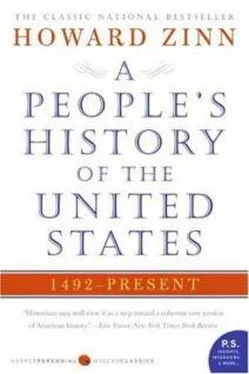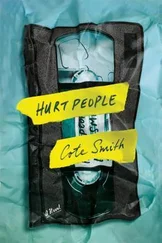Howard Zinn - A People
Здесь есть возможность читать онлайн «Howard Zinn - A People» весь текст электронной книги совершенно бесплатно (целиком полную версию без сокращений). В некоторых случаях можно слушать аудио, скачать через торрент в формате fb2 и присутствует краткое содержание. Издательство: Harper-Collins, Жанр: Фэнтези, на английском языке. Описание произведения, (предисловие) а так же отзывы посетителей доступны на портале библиотеки ЛибКат.
- Название:A People
- Автор:
- Издательство:Harper-Collins
- Жанр:
- Год:неизвестен
- ISBN:нет данных
- Рейтинг книги:4 / 5. Голосов: 1
-
Избранное:Добавить в избранное
- Отзывы:
-
Ваша оценка:
- 80
- 1
- 2
- 3
- 4
- 5
A People: краткое содержание, описание и аннотация
Предлагаем к чтению аннотацию, описание, краткое содержание или предисловие (зависит от того, что написал сам автор книги «A People»). Если вы не нашли необходимую информацию о книге — напишите в комментариях, мы постараемся отыскать её.
A People — читать онлайн бесплатно полную книгу (весь текст) целиком
Ниже представлен текст книги, разбитый по страницам. Система сохранения места последней прочитанной страницы, позволяет с удобством читать онлайн бесплатно книгу «A People», без необходимости каждый раз заново искать на чём Вы остановились. Поставьте закладку, и сможете в любой момент перейти на страницу, на которой закончили чтение.
Интервал:
Закладка:
Ten days before the bombing began, at a town meeting in Boulder, Colorado, with 800 people present, the question was put: "Do you support Bush's policy for war?" Only four people raised their hands. A few days before the war began, 41)00 people in Santa Fe, New Mexico, blocked a four-lane highway for an hour, asking that there be no war. Residents said this was larger than any demonstration in the Vietnam era.
On the eve of war, 6000 people marched through Ann Arbor, Michigan, to ask for peace. On the night the war began, 5000 people gathered in San Francisco to denounce the war and formed a human chain around the Federal Building. Police broke the chain by swinging their clubs at the hands of the protesters. But the San Francisco Board of Supervisors passed a resolution declaring the city and county a sanctuary for those who for "moral, ethical or religious reasons cannot participate in war."
The night before Bush gave the order to launch the bombing, a seven-year-old girl in Lexington, Massachusetts, told her mother she wanted to write a letter to the President. Her mother suggested it was late and she should write the next day. "No, tonight," the girl said. She was still learning to write, so she dictated a letter:
Dear President Bush. I don't like the way you are behaving. If you would make up your mind there won't be a war we won't have to have peace vigils. If you were in a war you wouldn't want to get hurt. What I'm saying is: I don't want any fighting to happen. Sincerely yours, Serena Kabat.
After the bombing of Iraq began along with the bombardment of public opinion, the polls showed overwhelming support for Bush's action, and this continued through the six weeks of the war. But was it an accurate reflection of the citizenry's long-term feelings about war? The split vote in the polls just before the war reflected a public still thinking its opinion might have an effect. Once the war was on, and clearly irreversible, in an atmosphere charged with patriotic fervor (the president of the United Church of Christ spoke of "the steady drumbeat of war messages"), it was not surprising that a great majority of the country would declare its support.
Nevertheless, even with little time to organize, and with the war over very fast, there was an opposition-a minority for sure, but a determined one, and with the potential to grow. Compared to the first months of the military escalation in Vietnam, the movement against the Gulf War expanded with extraordinary speed and vigor.
That first week of the war, while it was clear most Americans were supporting Bush's action, tens of thousands of people took to the streets in protest, in towns and cities all over the country. In Athens, Ohio, over 100 people were arrested, as they clashed with a prowar group. In Portland, Maine, 500 marched wearing white arm bands or carrying white paper crosses with one word, "Why?" written in red.
At the University of Georgia, 70 students opposed to the war held an all-night vigil, and in the Georgia Legislature, Representative Cynthia McKinnon made a speech attacking the bombing of Iraq, leading many of the other legislators to walk off the floor. She held her ground, and it seemed that there had been at least some change In thinking since Representative Julian Bond was expelled from the very same legislature for criticizing the war in Vietnam during the 1960s. At a junior high school in Newton, Massachusetts, 350 students marched to city hall to present a petition to the mayor declaring their opposition to the war in the Gulf. Clearly, many were trying to reconcile their feelings about war with their sympathy for soldiers sent to the Middle East. A student leader, Carly Baker, said: "We don't think bloodshed is the right way. We are supporting the troops and are proud of them, but we don't want war."
In Ada, Oklahoma, while East Central Oklahoma State University was «adopting» two National Guard units, two young women sat quietly on top of the concrete entrance gate with signs that read "Teach Peace… Not War." One of them, Patricia Biggs, said: "I don't think we should be over there. I don't think it's about justice and liberty, I think it's about economics. The big oil corporations have a lot to do with what is going on over there… We are risking people's lives for money."
Four days after the United States launched its air attack, 75,000 people (the estimate of the Capitol Police) marched in Washington, rallying near the White House to denounce the war. In Southern California, Ron Kovic addressed 6000 people who chanted "Peace Now!" In Fayetteville, Arkansas, a group supporting military policy was confronted by the Northwest Arkansas Citizens Against War, who marched carrying a flag-draped coffin and a banner that read "Bring Them Home Alive."
Another disabled Vietnam veteran, a professor of history and political science at York College in Pennsylvania named Philip Avillo, wrote in a local newspaper: "Yes, we need to support our men and women under arms. But let's support them by bringing them home; not by condoning this barbarous, violent policy." In Salt Lake City, hundreds of demonstrators, many with children, marched through the city's main streets chanting antiwar slogans.
In Vermont, which had just elected Socialist Bernie Sanders to Congress, over 2000 demonstrators disrupted a speech by the governor at the state house, and in Burlington, Vermont's largest city, 300 protesters walked through the downtown area, asking shop owners to close their doors in solidarity.
On January 26, nine days after the beginning of the war, over 150,000 people marched through the streets of Washington, D.C., and listened to speakers denounce the war, including the movie stars Susan Sarandon and Tim Robbins. A woman from Oakland, California, held up the folded American flag that was given to her when her husband was killed in Vietnam, saying, "I learned the hard way there is no glory in a folded flag."
Labor unions had supported the war in Vietnam for the most part, but after the bombing started in the Gulf, eleven affiliates of the AFL–CIO, including some of its more powerful unions-like steel, auto, communications, chemical workers-spoke out against the war.
The black community was far less enthusiastic than the rest of the country about what the U.S. Air Force was doing to Iraq. An ABC News/ Washington Post poll in early February, 1991, found that support for the war was 84 percent among whites, but only 48 percent among African-Americans.
When the war had been going on for a month, with Iraq devastated by the incessant bombing, there were feelers from Saddam Hussein that Iraq would withdraw from Kuwait if the United States would stop its attacks. Bush rejected the idea, and a meeting of black leaders in New York sharply criticized him, calling the war "an immoral and unspiritual diversion… a blatant evasion of our domestic responsibilities."
In Selma, Alabama, which had been the scene of bloody police violence against civil rights marchers twenty-six years before, a meeting to observe the anniversary of that "bloody Sunday" demanded that "our troops be brought home alive to fight for justice at home."
The father of a twenty-one-year-old Marine in the Persian Gulf, Alex Molnar, wrote an angry open letter, published in the New York Time , to President Bush:
Where were you, Mr. President, when Iraq was killing its own people with poison gas? Why, until the recent crisis, was it business as usual with Saddam Hussein, the man you now call a Hitler? Is the American "way of life" that you say my son is risking his life for the continued «right» of Americans to consume 25 to 30 percent of the world's oil?… I intend to support my son and his fellow soldiers by doing everything I can to oppose any offensive American military action in the Persian Gulf.
There were courageous individual acts by citizens, speaking out in spite of threats.
Читать дальшеИнтервал:
Закладка:
Похожие книги на «A People»
Представляем Вашему вниманию похожие книги на «A People» списком для выбора. Мы отобрали схожую по названию и смыслу литературу в надежде предоставить читателям больше вариантов отыскать новые, интересные, ещё непрочитанные произведения.
Обсуждение, отзывы о книге «A People» и просто собственные мнения читателей. Оставьте ваши комментарии, напишите, что Вы думаете о произведении, его смысле или главных героях. Укажите что конкретно понравилось, а что нет, и почему Вы так считаете.












